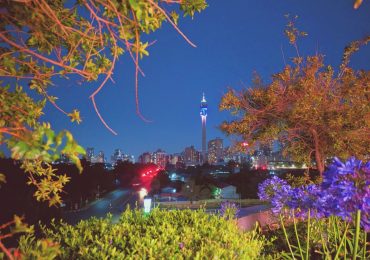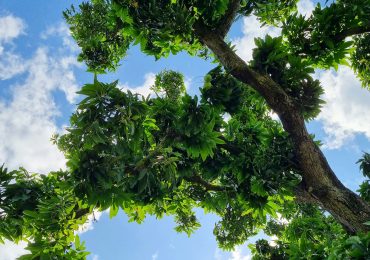The 2019 Booker Prize longlist has been announced, with the judges praising the ‘extraordinary ambition’ of the six books.
First awarded in 1969, the £50,000 prize is open to writers of any nationality, writing in English and published in the United Kingdom or Ireland.
After two years in which no African authors were chosen for the longlist, this year two Nigerian authors were selected for the thirteen-book longlist in July: Oyinkan Braithwaite, for My Sister, The Serial Killer, and Chigozie Obioma, for An Orchestra of Minorities, as was Bernardine Evaristo, whose work explores the African diaspora and her Nigerian heritage.
Evaristo and Obioma have both made the shortlist.
Braithwaite and Obioma are in South Africa this week for the Open Book Festival.
An Orchestra of Minorities is Obioma’s second novel and his second Booker Prize shortlisting. His debut, The Fishermen, was shortlisted for the 2015 edition of the award, and the highly acclaimed stage adaption of the novel opens today in the West End in London.
At the announcement this morning at the British Library in London, Chair of Judges Peter Florence said of the shortlist: ‘Like all great literature, these books teem with life, with a profound and celebratory humanity.’
2019 Booker Prize shortlist
Author (country/territory), title (imprint)
- Margaret Atwood (Canada), The Testaments (Vintage, Chatto & Windus)
- Lucy Ellmann (USA/UK), Ducks, Newburyport (Galley Beggar Press)
- Bernardine Evaristo (UK), Girl, Woman, Other (Hamish Hamilton)
- Chigozie Obioma (Nigeria), An Orchestra of Minorities (Little Brown)
- Salman Rushdie (UK/India), Quichotte (Jonathan Cape)
- Elif Shafak (UK/Turkey), 10 Minutes 38 Seconds in This Strange World (Viking)
The shortlist was chosen from 151 submitted books by a panel of five judges: founder and director of Hay Festival Peter Florence (Chair); former fiction publisher and editor Liz Calder; novelist, essayist and filmmaker Xiaolu Guo; writer, broadcaster and former barrister Afua Hirsch; and concert pianist, conductor and composer Joanna MacGregor. The prize says:
‘The shortlist offers an insight into different worlds from the dystopian setting of Gilead, the monologue of an Ohio housewife and the tragicomic tale of a travelling salesman in America; to mostly female, mostly Black, British lives across generations, the trials of a young Nigerian man on a quest to improve his prospects and true allegiances within the brothels of Istanbul.’
Florence said:
‘The common thread is our admiration for the extraordinary ambition of each of these books. There is an abundance of humour, of political and cultural engagement, of stylistic daring and astonishing beauty of language. Like all great literature, these books teem with life, with a profound and celebratory humanity. We have a shortlist of six extraordinary books and we could make a case for each of them as winner, but I want to toast all of them as “winners”. Anyone who reads all six of these books would be enriched and delighted, would be awe-struck by the power of story, and encouraged by what literature can do to set our imaginations free.’
The shortlisted authors each receive £2,500 (about R43,000) and a specially bound edition of their book.
The winner will be announced on Monday, 14 October 2019 at an awards ceremony at London’s Guildhall. The winner of the 2019 Booker Prize receives £50,000 (about R865,000).
The Booker Prize is known for its commercial boost. In the week following the announcement of last year’s winner, Milkman by Anna Burns, sales of the book increased by 880 per cent, from 963 in the week prior to the announcement to 9,446 in the week following, and then by a further 99 per cent (9,446 to 18,786) the following week.
Milkman is now sold in nearly forty languages, both in Europe and throughout Asia. The total number of copies of Milkman sold, across all formats, is currently 546,500, and Burns is in the process of negotiating a film deal.





